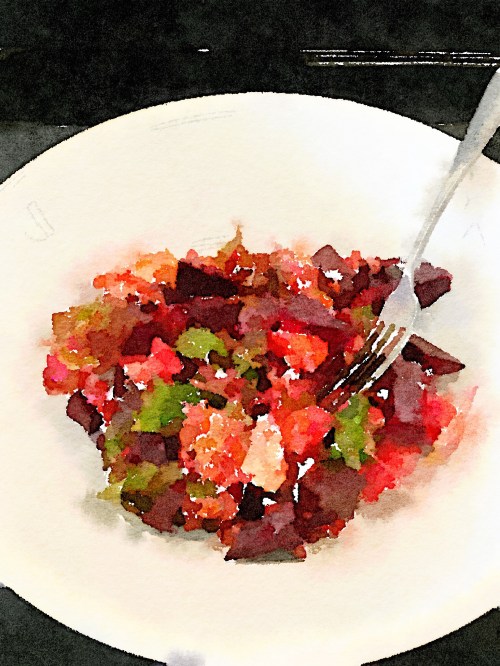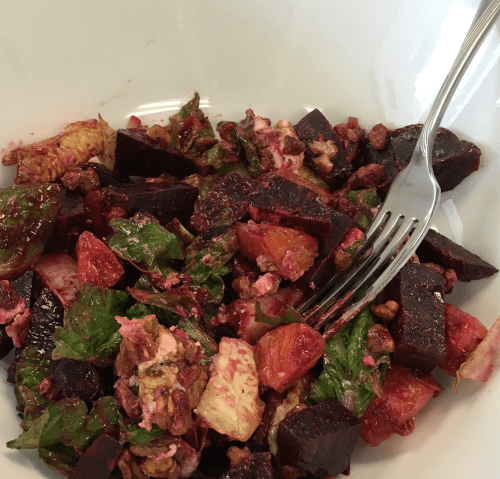
She wore jeans to the office on Friday. No big surprise there; she often does that, and sometimes on mid-week days when she doesn’t have meetings planned. Even in jeans, she looks professional, put-together, and not a bit sloppy: she looked, as she always does, classy.
I was wearing running clothes, as I usually do for breakfast-and-lunch prep and ferrying her to the train; I usually run or exercise or do whatever semi-messy chores the day-start requires after she’s on her way. I didn’t have time to run on Friday, though; I had to get to church for a funeral service.
I’d never met the deceased, a woman in her 80s who’d been in a nursing facility for the past few years; I’d only spoken with her husband a couple of times. He’s a trim, well-spoken fellow, who was holding himself together, just. During the service, his brother-in-law told the story of they met, how his sister had plenty of suitors but this skinny guy somehow won her heart, and as they dated and even long into their marriage he looked at her as if he couldn’t believe his luck. Others told stories of their entertaining, her gardening, her love for books; how classy she was.
At the reception after the service, I saw some photographs of the two of them in younger days, including the wedding portrait that had been displayed at the front of the church. I’ve seen plenty of old photographs, and lots of wedding portraits that make me think, “Well, that was how people looked then.” Not this time: this lady was beautiful for any generation. And classy. And he had that same, “Me? Really? With her?” look. (I suspect you’ll recognize that same look on my face in photos of us.)
I hadn’t planned it this way, but was glad for the lunch I’d packed us both: plenty of crunch, a little salt, and a little sweetness.
Roasted Beet and Clementine Salad
2 roasted beets, peeled and sliced or chopped into bite-sized wedges.
1 small package of soft goat cheese, crumbled
2 teaspoons pecans, toasted in a dry sauté pan until fragrant.
2 cups of assorted salad greens
1 clementine, peeled, sliced in half, and segmented (but not squeezed)
1/2 tsp each balsamic vinegar and olive oil
Salt and pepper to taste
Toss all in a large bowl, then plate or package into to-go containers.
Serves 2, who would rather be dining together.
I didn’t loosen my tie as I finished my day. I wanted to look good when I picked her up from the train. I was careful not to spill salad on my shirt.





